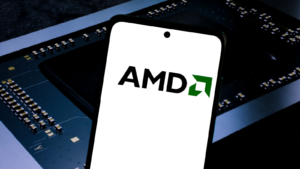
Whether consumer, tech, financial or healthcare, blue chip companies instill investor confidence based on their long-standing profitability and growth.
This translates to greater resilience during market downturns as they can tap into deep capital pools and solid credit positions. However, this also means blue-chip stocks have lesser potential for appreciation due to greater market cap weight that needs to be pushed up. For this reason, investors typically seek blue-chip stocks to buy during market downturns, so the valuation boost can be higher.
After the mid-April slump, the S&P 500 is bouncing back toward its all-time high of 5,264.85, having gained 10% year-to-date (YTD). But with so many companies considered blue-chip, which ones have the highest rally potential?
Costco (COST)

Two key ingredients make Costco (NASDAQ:COST) a special retail blue-chip stock to buy. One is financial and the other is social. On one hand, the company relies on membership fees which provide predictable revenue flows. On the other hand, Costco facilitates this model in a world of rampant retail theft that is forcing Walmart (NYSE:WMT) and Target (NYSE:TGT)to pack up and leave in many areas.
Therefore, Costco’s reliable, high-margin business model, based on membership access and tighter control, acts as a shield against social dysfunction. Moreover, Costco’s negotiated larger volume of goods secures regular good deals for customers, even though these goods may be limited in range.
In addition, this makes customers think of Costco during times of both inflation and recession. In March, the company delivered its Q1 of 2024 earnings report, showing 5.6% increase in revenue to $116.2 billion (24 weeks ended). The retailer’s net income increased to $1.7 billion from $1.46 billion a year-ago quarter.
At 0.335 debt to equity ratio, it is the lowest in ten years, close to February 2020 level of 0.337. As far as analyst forecasts go, COST shares continue to elicit strong buy consensus. Nasdaq’s average COST price target is now $792.36 versus the current $797.38 per share. The stock appreciated by 19% YTD, or 212% over five years, making this company one of the safest blue-chip stocks to buy.
Advanced Micro Devices (AMD)

Alongside Nvidia (NASDAQ:NVDA), Advanced Micro Devices (NASDAQ:AMD) is a top chipmaker choice that supplies cutting-edge solutions for generative artificial intelligence (AI) infrastructure.
However, even though the company beat earnings per share (EPS) estimates in the last three consecutive quarters, AMD’s shares experienced a notable drop. Not so long ago, they declined by almost 9% and traded at $144.27. This downturn occurred as AMD shares are down 14% in the last three months, while NVDA is up by 22% for the same period
The reasons for the slump are two-fold. First, the ASML Holding (NASDAQ:ASML) missed estimated orders forecast in Q1. Second, Nvidia has received such an incredible investment focus that it’s now considered an inflation hedge according to Bloomberg Markets Live Pulse survey.
But this puts AMD’s rally potential higher. Not only is AMD’s flagship AI chip, MI300X, a strong competitor at a lower price point, but also the company is pushing the envelope on accelerated processing units (APUs). These chips combine GPU and CPU in a single package, with Ryzen 8000G as the latest to rival console gaming performance.
Without having to buy a discrete GPU for gaming, AMD’s APU push could land it as the dominant integrated graphics brand. At the same time, the company still caters to higher tier users with budget-friendly and competitive discrete GPUs like the RX 7000 series. Moreover, AMD’s RDNA 4 GPUs (RX 8000) are rumored to rival Nvidia’s flagship RTX 4080 for half the cost.
Taking these factors into account, AMD analyst consensus, pulled by Nasdaq, is a strong buy. The average AMD price target is $192.4 versus current $150.56 per share.
Linde PLC (LIN)

Following the attack on the Nord Stream pipelines, Linde (NASDAQ:LIN) went through multiple valuation spikes. Although based in the U.K., the gas giant has global operations to help diversify Europe’s energy security. Moreover, LIN’s long term contracts and supply chain makes it a wide moat company.
In Q1 of 2024 earnings, Linde PLC reported 6% operating profit increase to $2.1 billion. It delivered $1.8 billion in net income, up 8% year-over-year (YOY). Not only is Linde generating ample cash in every quarter, but also it returned $1.7 billion to shareholders via dividends and stock buybacks.
Pursuing net zero efforts, Linde PLC signed a long-term agreement with H2 Green Steel on May 1st, the world’s first large-scale green steel production plant. Showing strong dedication to ESG compliance, investors can be assured that Linde PLC’s 0.523 debt to equity ratio continues to take advantage of favored financing.
Given its strong fundamentals and robust returns to shareholders, Linde PLC represents one of the most attractive blue-chip stocks to buy. Nasdaq’s consensus is another strong buy. The average LIN price target stands at $488.91 versus the current $434.78 per share. Even the low estimate of $452 is higher than the present price level.
On the date of publication, Shane Neagle did not hold (either directly or indirectly) any positions in the securities mentioned in this article. The opinions expressed in this article are those of the writer, subject to the InvestorPlace.com Publishing Guidelines.






